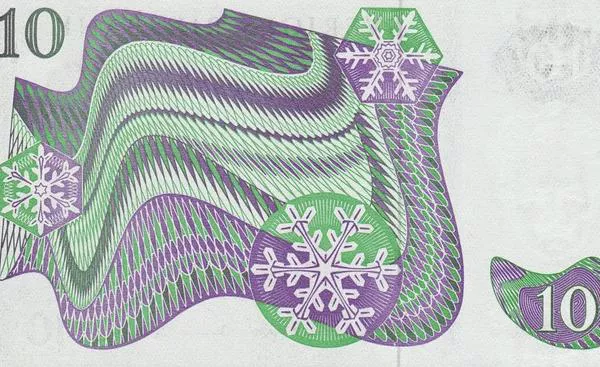Sweden, a Nordic country renowned for its robust economy, high standard of living, and global trade influence, has an interesting relationship with currency. While it is a member of the European Union (EU), Sweden has notably opted not to adopt the euro, the common currency of many EU nations. This decision has raised questions about what currency is preferred in Sweden, particularly among foreign exchange traders, business professionals, and global travelers. In this article, we will delve into the preferred currency in Sweden, the reasons behind Sweden’s decision not to join the eurozone, and the broader implications of this on Swedish financial markets, businesses, and international trade.
The Swedish Krona (SEK)
The official currency of Sweden is the Swedish Krona (SEK), which has been in use since 1873. The word “krona” translates to “crown” in English, and the term is symbolic of Sweden’s long-standing monetary history. The SEK is issued and regulated by Sweden’s central bank, Sveriges Riksbank, which is the oldest central bank in the world. The Riksbank plays a crucial role in the Swedish economy, particularly in controlling inflation, setting interest rates, and maintaining the stability of the country’s currency.
Why Sweden Has Not Adopted the Euro
Despite being a member of the European Union since 1995, Sweden has refrained from adopting the euro, a decision that is highly debated within the country. There are several key factors that explain Sweden’s resistance to the euro, some of which are economic, political, and social in nature.
Economic Stability and Independence
One of the primary reasons Sweden has chosen to retain its national currency is the desire for economic stability and the flexibility to control its own monetary policy. Sweden’s central bank, the Riksbank, has been successful in managing inflation, keeping it within low and stable levels. With its own currency, Sweden can adjust interest rates to suit its domestic economic conditions. If Sweden adopted the euro, the responsibility for monetary policy would shift to the European Central Bank (ECB), and Sweden would lose the ability to independently adjust interest rates to address its unique economic challenges.
The Swedish Public’s Sentiment
Another key reason Sweden has not adopted the euro is public opinion. In a 2003 referendum, Swedish citizens voted against joining the eurozone by a margin of 56.1% to 41.8%. The Swedish public was concerned about the loss of monetary autonomy and the potential for economic instability. Many Swedes felt that joining the eurozone could lead to higher costs of living and inflation, especially given the differing economic conditions across the various eurozone countries. Although the referendum was over a decade ago, the sentiment remains relatively strong, with many Swedes preferring the security of their national currency.
Economic Differences Within the EU
Sweden has a relatively small but highly developed economy, and its economic structure differs in some key ways from the larger eurozone countries like Germany, France, and Italy. Sweden’s economy is export-driven, and it has been able to leverage the strength of the SEK in global markets. As part of the eurozone, Sweden would face challenges in aligning its economic policy with other countries that have different fiscal and monetary conditions. The flexibility provided by the SEK enables Sweden to remain competitive in the global economy, especially in sectors such as technology, automotive manufacturing, and trade.
Risk of Currency Instability
The eurozone has experienced several financial crises in the past, most notably during the Eurozone Debt Crisis (2009–2012), when several countries, including Greece, Portugal, and Spain, faced sovereign debt crises. These crises led to significant fluctuations in the value of the euro, raising concerns about currency instability. By keeping the SEK, Sweden has been able to avoid these challenges, as its currency has remained relatively stable compared to the euro during times of economic uncertainty.
The Role of the Swedish Krona in the Foreign Exchange Market
For foreign exchange (forex) traders and investors, the Swedish Krona is an important currency to understand. As Sweden has a highly developed financial market, the SEK is widely traded on the global forex market, where it is considered a minor currency, compared to the major ones like the US dollar (USD), euro (EUR), Japanese yen (JPY), and British pound (GBP). However, it is still an important currency for traders focusing on Scandinavian and Nordic markets.
The SEK is often used as a safe-haven currency, particularly in times of global uncertainty. Sweden’s stable economy, low inflation, and strong banking sector make the SEK an attractive option for investors seeking less risk. Furthermore, the currency is affected by the country’s export performance, as Sweden is a major exporter of goods such as automobiles, electronics, and timber. As a result, fluctuations in global commodity prices and trade relationships can influence the value of the SEK.
In forex trading, the SEK is often paired with the euro (EUR/SEK) and the US dollar (USD/SEK). These currency pairs are popular due to Sweden’s close economic ties with the eurozone and the United States. In addition, Swedish central bank policy decisions, such as interest rate changes, have a direct impact on the value of the SEK, and investors closely monitor the Riksbank’s actions and statements.
Conclusion
In summary, the preferred currency in Sweden is the Swedish Krona (SEK), which has been the country’s official currency since 1873. Despite being a member of the European Union, Sweden has made the decision to maintain its national currency rather than adopt the euro. This decision is driven by a variety of factors, including the desire for economic independence, public sentiment, and Sweden’s unique economic structure. For forex traders and investors, the SEK is an important currency to watch, particularly in relation to Sweden’s strong export sector and its role as a safe-haven asset. As Sweden continues to navigate global economic challenges, the Swedish Krona will likely remain a key player in the international financial markets.
Related Topics:
























